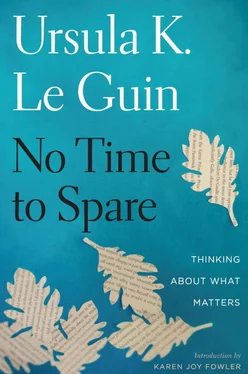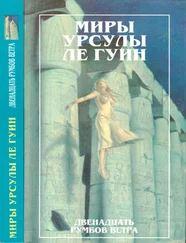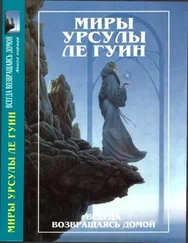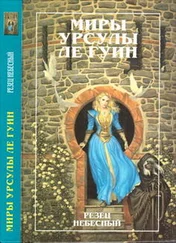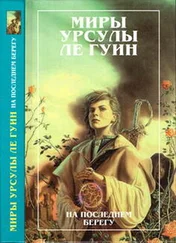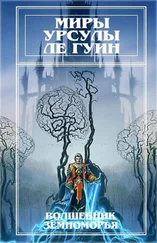I couldn’t help thinking how cool it would have been if Mo Yan had used some of his Nobel Prize money to set up a fund for the publication of Chinese authors whose writings support total freedom of speech. But this seems unlikely.
Sartre’s reason for refusal was consistent with his refusal to join the Legion of Honor and other such organizations and characteristic of the gnarly and countersuggestible existentialist. He said, “It isn’t the same thing if I sign Jean-Paul Sartre or if I sign Jean-Paul Sartre, Nobel Prize winner. A writer must refuse to let himself be turned into an institution.” He was, of course, already an “institution,” but he valued his personal autonomy. (How he reconciled that value with Maoism is not clear to me.) He didn’t let institutions own him, but he did join uprisings, and was arrested for civil disobedience in the street demos supporting the strikes of May 1968. President de Gaulle quickly pardoned him, with the magnificently Gallic observation that “you don’t arrest Voltaire.”
I wish the Sartre Prize for Prize Refusal could have been called the Boris Pasternak Prize for one of my true heroes. But it wouldn’t be appropriate, since Pasternak didn’t exactly choose to refuse his 1958 Nobel. He had to. If he’d tried to go accept it, the Soviet government would have promptly, enthusiastically arrested him and sent him to eternal silence in a gulag in Siberia.
I refused a prize once. My reasons were mingier than Sartre’s, though not entirely unrelated. It was in the coldest, insanest days of the Cold War, when even the little planet Esseff was politically divided against itself. My novelette The Diary of the Rose was awarded the Nebula Prize by the Science Fiction Writers of America. At about the same time, the same organization deprived the Polish novelist Stanislaw Lem of his honorary membership. There was a sizable contingent of Cold Warrior members who felt that a man who lived behind the iron curtain and was rude about American science fiction must be a Commie rat who had no business in the SFWA. They invoked a technicality to deprive him of his membership and insisted on applying it. Lem was a difficult, arrogant, sometimes insufferable man, but a courageous one and a first-rate author, writing with more independence of mind than would seem possible in Poland under the Soviet regime. I was very angry at the injustice of the crass and petty insult offered him by the SFWA. I dropped my membership and, feeling it would be shameless to accept an award for a story about political intolerance from a group that had just displayed political intolerance, took my entry out of Nebula competition shortly before the winners were to be announced. The SFWA called me to plead with me not to withdraw it, since it had, in fact, won. I couldn’t do that. So—with the perfect irony that awaits anybody who strikes a noble pose on high moral ground—my award went to the runner-up: Isaac Asimov, the old chieftain of the Cold Warriors.
What relates my small refusal to Sartre’s big one is the sense that to accept an award from an institution is to be co-opted by, embodied as, the institution. Sartre refused this on general principle, while I acted in specific protest. But I do have sympathy for his distrust of allowing himself to be identified as something other than himself. He felt that the huge label “Success” that the Nobel sticks on an author’s forehead would, as it were, hide his face. His becoming a “Nobelist” would adulterate his authority as Sartre.
Which is, of course, precisely what the commercial machinery of bestsellerdom and prizedom wants: the name as product. The guaranteed imprint of salable Success. Nobel Prize Winner So-and-so. Best-Selling Author Thus-and-such. Thirty Weeks on the New York Times Bestseller List Whozit. Jane D. Wonthepulitzer… John Q. MacArthurgenius…
It isn’t what the people who established the awards want them to do or to mean, but it’s how they’re used. As a way to honor a writer, an award has genuine value, but the use of prizes as a marketing ploy by corporate capitalism, and sometimes as a political gimmick by the awarders, has compromised their value. And the more prestigious and valued the prize, the more compromised it is.
Still, I’m glad that José Saramago, a much tougher Marxist nut than Sartre, saw fit not to refuse the Nobel Prize. He knew nothing, not even Success, could compromise him, and no institution could turn him into itself. His face was his own face to the end. And despite the committee’s many bizarre selections and omissions, the Nobel Prize for Literature retains considerable value, precisely because it is identified with such writers as Pasternak, or Szymborska, or Saramago. It bears at least a glimmer reflected from their faces.
All the same, I think the Sartre Prize for Prize Refusal should be recognized as a valuable and timely award, and what’s more, one pretty safe to remain untainted by exploitation. I wish somebody really contemptible would award me a prize so I could be in the running for a Sartre.
September 2011
WHEN I WAS a young novelist, fairly often a reviewer would get fervent and declare that an obscure book such as Call It Sleep, or a hugely successful one such as The Naked and the Dead, was The Great American Novel. By writers the phrase was used half jokingly—What are you writing these days? Oh, you know, The Great American Novel. I don’t think I’ve seen the phrase used at all for a couple of decades at least. Maybe we’ve given up on greatness, or anyhow on American greatness.
I began quite a while ago to resist declarations of literary greatness in the sense of singling out any one book as TGAN, or even making lists of the Great American Books. Partly because the supposed categories of excellence omitting all genre writing, and the awards and reading lists and canons routinely and unquestioningly favoring work by men in the eastern half of the United States, made no sense to me. But mostly because I didn’t and don’t think we have much idea of what’s enduringly excellent until it’s endured. Been around quite a long time. Five or six decades, to start with.
Of course the excellence of immediate, real impact, of an art that embodies the moment, is an excellent kind of excellence. Such a novel speaks to you now, this moment. It tells you what’s going on when you need to know what’s going on. It speaks to your age group or social group that nobody else can speak for, or it embodies whatever the current anguish is, or it shows a light at the end of the tunnel of the moment.
I think all the enduringly excellent books began, in fact, as immediately excellent, whether they were noticed at the time or not. Their special quality is to outlast the moment and carry immediacy, impact, meaning, undiminished or even increasing with time, to ages and people entirely different from those the novelist wrote for.
The Great American Novel… Moby-Dick ? Not greatly noticed when published, but canonized in the twentieth century; no doubt A Great American Novel. And The Great (canonical) American Novelists—Hawthorne, James, Twain, Faulkner, etc., etc… . But two books keep getting left off these lists, two novels that to me are genuinely, immediately, and permanently excellent. Call them great if you like the word. Certainly they are American to the bone.
I won’t talk about Uncle Tom’s Cabin, much as I love and admire it, because I want to talk about the other one.
If somebody came up to me in a dark alley with a sharp knife and said, “Name The Great American Novel or die!” I would gasp forth, squeakily, “The Grapes of Wrath !”
I wouldn’t have, a year ago.
Читать дальше
